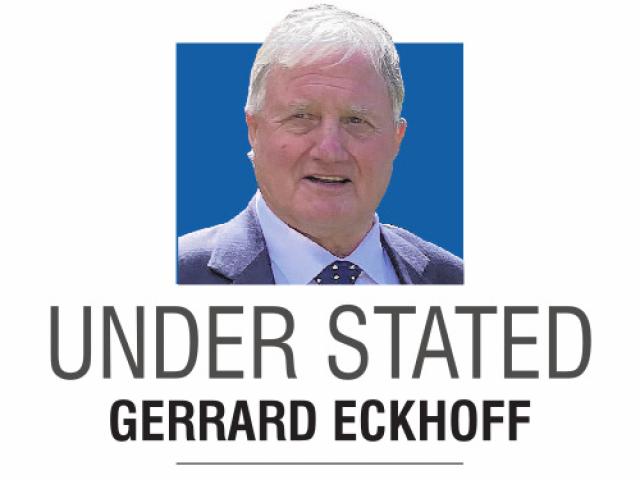
In the early stages of our civilisation, we were ruled by kings and queens who could take whatever they wanted, including life and land for their purposes.
The Magna Carta saw much of that power removed including the right to be "disseized [relieved] of your freehold".

These were people who paid little heed to customers or competition.
They were monopolistic and became wealthy beyond measure.
Thanks to antitrust laws the robber barons have all but gone only to be replaced by new all-powerful authorities.
We call them monopolies, duopolies, oligopolies and councils.
That may be a bit of an unfair comparison on councils but then so too is a 20% rate increase.
We appear to be heading back to the time when the local authorities can take property with impunity as long as heritage is mentioned somewhere along the line.
This concept of heritage covers a multitude of "sins" from historical, symbolic, spiritual, aesthetic and social, which effectively means everything which is of value to someone somewhere, is covered.
A sign erected near Roxburgh some years ago got it about right.
It read: "at this historic site in 1857 ... nothing happened."
Just mention heritage and blockages occur out of nowhere.
It’s not really a question of whether something is worthy of protection but how that happy state is achieved.
Today, authorities simply take the use rights to land and property with no compensation.
Economists call it a taking; property owners call it theft.
What is happening today therefore is little different from centuries ago — just different names and processes.
Nice work if you can get it.
Consider the significant natural area scheme (SNAs).
Once an area of private land is identified by those with an interest in someone else’s asset, councils step in and exercise their authority.
No discussion, no negotiation, no compensation despite the owner paying tax and rates but who was also foolish enough to "protect" his/her land from pests, the chainsaw and the plough.
Such people, who have left their own property in its natural state are now effectively penalised by official decree for protecting the "heritage" value of their private property.
Councils step in and designate private land as an outstanding natural landscape (ONL) for a public purpose.
Which is a "taking" as this land becomes commercially worthless to the actual owner.
Just why Māori land is free from all ONL designations or SNA identifications is an open question we need answers to.
Actually, the answer is entirely obvious.
Māori will not allow further confiscation of their land, so non-Māori are easy targets.
Kaumātua Edward Ellison’s appointment to deputy chair of Heritage NZ will therefore be followed with great interest.
Heritage is a word that is used to appeal to the finer sensibilities of people.
Save it before it’s all gone makes a certain sense but councils, by their ill-considered actions, simply destroy value.
Consider how vintage cars and artworks (by way of an example) are not protected by authorities but highly valued by so many people interested in heritage.
No rules, no laws needed: just value added.
If we asked the council to identify these vintage or heritage cars and works of art and save them from being of value to the owner, what is likely to occur?
The answer is, of course, nobody would bother to restore or protect them and, importantly, neither would the council as they have other priorities.
Value is lost.
The recent controversy over a house in Stuart St, Dunedin called a heritage house is a great example.
There is little doubt the house and land are of real value but to whom?
Should the value rest solely with the owner or with the people who "engage" with the council to "save" the property?
Who has the legal and prior right to the property’s value?
The property owners, who paid the rates and maintained the house, or the interest group who have no legal right to the property at all.
There is another vital aspect to heritage.
It’s called the law, which has evolved through the ages and given us a civil society.
Law that has enabled the common man/woman to prosper under the concept of the Torrens system of land ownership.
No legal interest in land may be created except by registration under the Land Transfer Act or (latterly) by council authority.
Unbelievably, the Dunedin council is appealing to the public to identify other people’s property so councillors can relieve these unfortunate ratepayers of their property’s true value.
Your house, land or tree could be next.
It’s about taking value which belongs to someone else — potentially you.
This whole issue is really not one of heritage but one of ethical, even moral behaviour by authorities.
Will councils ever discover this reality?
Unlikely.
• Gerrard Eckhoff is a former Otago regional councillor and Act New Zealand MP. Our usual Thursday columnist, Hilary Calvert, is on leave.











